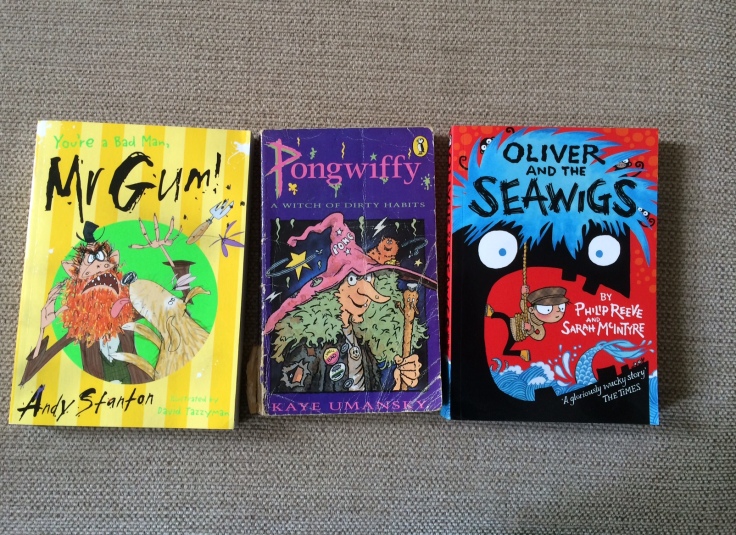A few weeks ago I had an epiphany.
I’d decided to use the July 1st deadline for the Greenhouse Funny Prize as an incentive to finish a story I’ve been working on for a good few years. NB, I don’t expect to place in this, but it’s always good to have a deadline to work towards.
Anyway, there had always been something slightly wrong with this book, but I’d never quite managed to put my finger on what the problem was. Initially I thought it was plot related – the first few versions were all character no plot, the latest plot was overly complicated. This suspicion was compounded when I took a break from editing one morning and came across an article pointing out that I’d begun every one of the four or five versions with an ‘alarm clock opening’ – aka a terrible cliché.
Chris d’Lacy wrote in the Guardian, ‘We don’t want to read about Fred waking up, switching off the alarm, yawning, scratching his bum, putting his slippers on, going to the bathroom, etc. Just GET HIM DOWNSTAIRS to find out what the heck is clawing at those windows…’
I had started:
The trouble started on the first morning of the summer holidays. I woke up, as I almost always do, with a cat on my face.
‘Mrau,’ it said cheerfully.
Then the main character got up, pulled on a hoodie, and shuffled down the stairs to return the creature to its owner. Oops.

Lots of other problems presented themselves during that edit. Like JRR Tolkien at his worst, I’d spent pages on having characters walk places, stand outside doors, and carry out tasks that added nothing to the story. I’d also included approximately 9 million raised eyebrows, 1000 descriptions of echoing footsteps to denote empty corridors, and countless references to film, TV and technology that will instantly date the story for young readers.
I blamed the crapness of this effort on a number of things. My day job had been quite full on when I was trying to write it, filling my head with boring corporate stuff. I hadn’t had time to marathon cartoons in AGES. I’d been reading grown up fiction before bed instead of something light and silly. I was trying to force myself to write when I was too tired. I’d lost the knack. I was over thinking it. I was good at characters but terrible at plot.

Then the aforementioned epiphany came, and actually it was simpler than that. I’d been using the wrong voice.
I’ve been telling the story from the first person perspective of Christina Oni, a 12 year old girl of Scottish-Nigerian heritage who discovers that people on her street have been going missing and sets out to find them with the help of her eccentric neighbour Amelia Trousers. There follows a madcap adventure featuring evil scientists, unexpected friendship, and wormholes.
Back in 2011, when I first started writing about Amelia Trousers, Chris was a ten-year-old white boy. The story involved a gang of talking cats which were stolen by an antagonist, and Chris helped Amelia to find them. The plot was slight, and I ran out of steam around 5,000 words in.
Both versions focussed very much on the character of Chris, but the first character to be invented was Amelia. She started life as a nonsense name invented by a friend, and I knew her pretty well because she’s been in my head nearly ten years. I knew she was a lady of indeterminate age, with waist-length curly grey hair, who lived in a house filled with cats. I knew she had adventures, and had been all over the world working as a travel writer. I knew she was short and round and fearless, all of which helped her to go unnoticed into dangerous situations (to note, I realise this is not dissimilar to the premise of Spy, but she was invented several years before that).

In my head, the book always had Amelia’s name in the title. If there were to be an Amelia series (increasingly unlikely given the trouble I’ve had finishing just one), she would be the constant. For that to work, though, the story really ought to be about her. Chris is supposed to be a supporting character, around the age or a little older than the readers, to give them a way in. And yet I kept beginning with her. In one incarnation, Amelia didn’t physically appear until Chapter Eleven.
Part of the reason for getting sidetracked by Chris was that I started the current incarnation of the book after reading a lot about the lack of BAME voices in literature for children and young adults. See: this piece on the literary invisibility of writers who don’t conform to white expectations, the We Need Diverse Books campaign, this by Beth Kemp, and follow Malorie Blackman on Twitter.
This encouraged me to question my own writing habits, and I found myself lacking. I read around cultural appropriation, and after much umming and ahing concluded there was no reason for Chris to be a white boy if he was about to be thrown into a nonsense story set in a fictional town, so I switched his gender and ethnicity. I think this is a valid thing to do, because I can’t think of a single nonsense story with a non-white lead – yet this type of fiction (fun and not preachy) is a great way of encouraging young kids to read.
However, because this all came from a place of anger at the social injustices reflected by the publishing industry, the changes introduced a new sense of obligation to the character. Instead of seeing her as a foil to the wacky adventures of Amelia Trousers, I found myself wanting to write a three dimensional character.
Tropes I wanted to avoid included:
- The protagonist being bookish, or a nerd
- The protagonist being orphaned or abandoned
- The protagonist being a white boy
I ended up with Christina MacDonald Oni, Chris for short. She is the eldest child of a Nigerian mother and a Scottish father, and has a younger brother, Dante. They are named after Christina and Dante Rossetti because literature jokes are fun. Their parents live together, are in a happy relationship, and are interested in the lives of their children. They also happen to be science geniuses, as is Dante. Chris is smart, but more interested in cross-country running than chemistry (possibly an off-shoot of another campaign that started when I was thinking about all this – This Girl Can). She’s not sure what she wants to be when she grows up yet. Spending time with Amelia, a travel writer, makes her think about becoming an investigative journalist, but she hasn’t decided yet.

When writing from the perspective of this character, I couldn’t help putting myself in the position of a 12-year-old girl. Her narrative contained sarcasm, teenage angst, and some serious worrying. This might be appropriate for YA, but in my head Amelia Trousers is and has always been for younger readers. That being the case, Chris can’t actually be a rounded, complex bundle of hormones. She needs to be brave, pragmatic, and perhaps occasionally acerbic, but 7 – 10 year olds don’t need the full internal life that I’ve created for her to get them reading. They need someone like Pongwiffy’s familiar Hugo the Hamster, or Jammy Grammy Lammy F’Huppa F’Huppa Berlin Stereo Eo Eo Lebb C’Yepp Nermonica Le Straypeck De Grespin De Crespin De Spespin De Vespin De Whoop De Loop De Brunkle Merry Christmas Lenoir (Polly for short), or possibly Oliver Crisp.

All those characters are written in the third person, a narrative that gives the authors enough distance to be silly, to make jokes, to break the fourth wall. You know about enough about them to like them – but you don’t know their full inner life. In a nonsense book, you need a silly plot for them to react to, but you can’t go too big on personal detail. What 7 year old is interested in that?
It seemed obvious as soon as I thought about it, yet I’d merrily cracked on in the first person for 53,431 words, amassing pages of detail that just doesn’t belong in this story.
So, with three weeks to go til the competition deadline, I opened a new word doc and began again. I pared back the detail, shaved a couple of years off Chris’s age, and removed a subplot about her arch nemesis Emma Evans. I’ve now got a more young reader friendly 13,147 words, which has been submitted – but as mentioned above I’m not expecting to win. This was more a tactic to make myself finish. I am now in search of Beta readers to have a look through and help me find the problems that remain.
If you’re fond of silly stories for younger children (think Spike Milligan in Sir Nobonk, Andy Stanton or Kaye Umansky), and you have a few hours spare to read Amelia Trousers and the Great Biscuit Debacle and answer a couple of questions to help me make it better, please drop me a comment / tweet / email – and if you know someone else that might be interested, please pass this on.
And if you’re struggling with a story that isn’t quite working, maybe think about telling it in a different voice.


Leave a comment